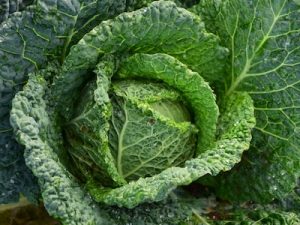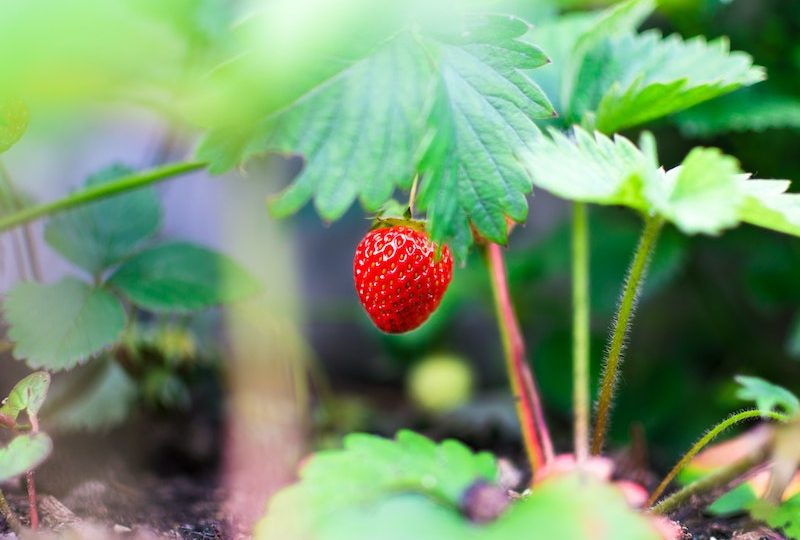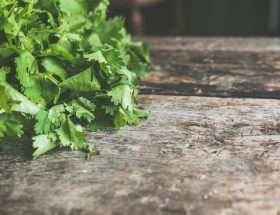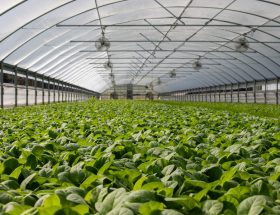Organic food has become increasingly popular in recent years, as more people become concerned about the impact of conventional farming methods on the environment and their health. The organic food market is now worth billions of dollars, with organic produce, dairy, meat, and packaged foods available at most grocery stores. But what exactly is organic food, and why should you choose it over conventionally grown options? In this article, we’ll explore the benefits of eating organic and examine the differences between organic and conventional farming methods.
Organic vs Conventional Farming Methods
 The primary difference between organic and conventional farming methods is the use of synthetic chemicals, such as pesticides, herbicides, and fertilizers. Conventional farmers rely heavily on these chemicals to increase crop yields and protect crops from pests and diseases. However, the widespread use of these chemicals has led to concerns about their impact on human health and the environment. For example, pesticide exposure has been linked to cancer, neurological problems, and reproductive issues.
The primary difference between organic and conventional farming methods is the use of synthetic chemicals, such as pesticides, herbicides, and fertilizers. Conventional farmers rely heavily on these chemicals to increase crop yields and protect crops from pests and diseases. However, the widespread use of these chemicals has led to concerns about their impact on human health and the environment. For example, pesticide exposure has been linked to cancer, neurological problems, and reproductive issues.
Organic farmers, on the other hand, use natural methods to control pests and diseases and enhance soil fertility. These methods may include crop rotation, companion planting, and the use of natural pest deterrents, such as ladybugs or neem oil. Organic farmers also avoid using genetically modified organisms (GMOs) and synthetic fertilizers.
The differences in farming methods have significant environmental implications. Conventional farming practices can contribute to soil degradation, water pollution, and the destruction of wildlife habitats. Organic farming, on the other hand, can help preserve biodiversity, conserve soil and water resources, and reduce greenhouse gas emissions.
Health Benefits of Consuming Organic Food
In addition to being better for the environment, organic food is also believed to be healthier for human consumption. Organic produce is grown without synthetic pesticides and fertilizers, which means it may contain fewer harmful chemicals. In fact, a study by the European Parliament found that organic crops had, on average, 40% fewer pesticide residues than conventionally grown crops.
Organic meat and dairy products are also believed to be healthier, as they are produced without the use of antibiotics or growth hormones. Conventional livestock farmers often use antibiotics to prevent disease and promote growth, but overuse of antibiotics can contribute to the development of antibiotic-resistant bacteria. Organic farmers rely on natural methods to keep their animals healthy, such as providing them with a natural diet and access to outdoor areas.
Organic food may also contain more nutrients than conventionally grown food. A review of studies published in the Journal of the Science of Food and Agriculture found that organic produce contained higher levels of certain nutrients, such as vitamin C, iron, and magnesium.
Environmental Benefits of Choosing Organic
Choosing organic food can also have positive environmental impacts. Organic farming practices are designed to minimize the use of synthetic chemicals and promote soil health. This can help reduce soil erosion, conserve water resources, and promote biodiversity. Organic farming can also reduce greenhouse gas emissions, as organic farmers rely on natural methods to control pests and diseases and do not use synthetic fertilizers, which can release nitrous oxide, a potent greenhouse gas.
Organic farming also supports local economies and helps small-scale farmers compete with larger, industrial farms. Organic farms tend to be smaller and more diverse than conventional farms, and organic farmers often sell their produce at local farmers’ markets or through community-supported agriculture (CSA) programs. This can help reduce transportation emissions and support local food systems.
Common Misconceptions About Organic Food
Despite the many benefits of organic food, there are still some common misconceptions that may prevent people from choosing organic options. Let’s examine some of these misconceptions:
Organic food is too expensive
It is true that organic food can be more expensive than conventionally grown options, but this is not always the case. The price of organic food has come down in recent years as demand has increased, and some studies have found that the cost difference between organic and conventional food is smaller than many people think. Additionally, buying organic can be more cost-effective in the long run, as organic food is often more nutrient-dense and can help reduce healthcare costs by promoting better health.
Organic food is not widely available
While it is true that organic food may not be available at every grocery store or restaurant, it is becoming increasingly common. Many large grocery store chains now carry organic produce and packaged foods, and many farmers’ markets and CSA programs offer organic options. Additionally, online retailers and subscription services can deliver organic food directly to your doorstep.
Organic food does not taste as good as conventional food
This is a matter of personal preference, but many people find that organic food tastes better than conventionally grown options. Organic produce is often allowed to ripen fully on the vine, which can enhance its flavor and nutrient content. Additionally, organic farming methods can promote soil health, which can lead to better-tasting produce.
How to Incorporate Organic Food into Your Diet
If you’re interested in incorporating more organic food into your diet, there are several strategies you can try:
Choosing organic options at the grocery store
Look for the USDA Organic label on produce, meat, and packaged foods. This label indicates that the product has been certified by the USDA as meeting organic standards. You can also look for the Non-GMO Project Verified label, which indicates that the product does not contain genetically modified organisms.
Growing your own organic produce
If you have space for a garden, consider growing your own organic produce. This can be a fun and rewarding way to ensure that your food is free from synthetic chemicals and is as fresh as possible. You can find organic seeds and starter plants at many nurseries and garden centers.
Joining a community-supported agriculture (CSA) program
A CSA program allows you to purchase a share of a local farm’s harvest, usually on a weekly or bi-weekly basis. This can be a great way to support local agriculture and ensure that you have access to fresh, organic produce throughout the growing season.
Conclusion
Choosing organic food can have numerous benefits for both personal and planetary health. By supporting organic farming practices, we can help protect the environment, promote biodiversity, and reduce our carbon footprint. Organic food can also be more nutrient-dense and may contain fewer harmful chemicals than conventionally grown options. While there are some misconceptions about organic food, it is becoming increasingly available and affordable. By incorporating more organic food into our diets, we can support a healthier, more sustainable food system.









